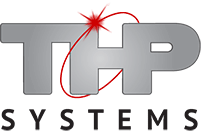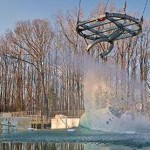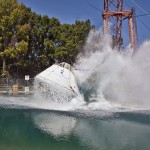Seal Beach, CA (Dec. 2014) – It’s no simple task to travel 3,600 miles into space, blaze back through Earth’s atmosphere at 20,000 mph with temperatures approaching 4,000 degrees Fahrenheit, and then splash-land into the Pacific Ocean. That’s why NASA has spent three years dropping the 18,000 pound Orion mock-up space capsule into a special test pool all wired up with hundreds of sensors, strain gauges and accelerometers to measure stresses and structural integrity, as well as the safety of future astronauts on board. In a series of splashdown tests at the Hydro Impact Basin at Langley Research Centre, NASA relied on DTS (Diversified Technical Systems) sophisticated data recorders and software to capture all the action as they simulated different water landing scenarios that Orion could face when it splashes down into the Pacific on its Dec. 4, 2014 inaugural flight.
Unlike many data recorders used for testing, DTS systems are so small and lightweight that they fit on-board and run autonomously during testing. But what really sets these “black box type recorders” apart is that they are one of the few miniature data recorders in the world designed specifically to survive harsh impacts (like crashing and blasting) and still deliver accurate data every time.
“Being a part of NASA’s Orion space vehicle testing at Langley has been an extremely gratifying experience for DTS,” said Mike Beckage, DTS co-founder and chair of Lowell Observatory’s advisory board. “We’re proud to know that the data collected with our systems help make space exploration safer.”
The Orion Flight Test is a two-orbit, four-hour flight that will test many of the systems most critical to safety. Orion is the exploration spacecraft designed to carry astronauts to destinations not yet explored by humans, including an asteroid and Mars.
For more information on DTS’s data acquisition systems, visit www.thp-systems.com or contact [email protected]
About DTS
Founded in 1990 by three crash test engineers, DTS data recorders and sensors are used worldwide in crash, blast and biomechanics testing by top automakers, aerospace and leading research facilities. The U.S. Army named a DTS helmet sensor as one of “The Greatest Inventions.” Inc. Magazine has named DTS three times as one of the fastest-growing private companies in the U.S. Based in Seal Beach, California DTS has technical centers in Michigan, Australia, China, U.K. and Japan.






